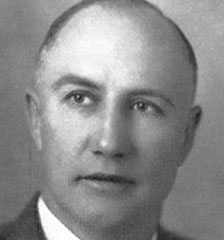
THURMOND, STROM, age 100, the
longest-serving U.S. senator in history. His political career
spanned seven decades. His voting record was pro-defense, anti-communist
and staunchly conservative; his tireless devotion to constituent
services was widely revered. Sen. Strom
Thurmond was a loyal and generous friend to higher education
in South Carolina,
and to
the University of South Carolina in particular. For
more than half a century, university presidents and higher education
leaders sought his counsel and came to rely on his leadership,
his insight, and his judgement, as they dealt with sweeping
changes on campuses. His longstanding commitment to education
is visible on college campuses across the state, where programs
and buildings that he was instrumental in establishing bear
his name.

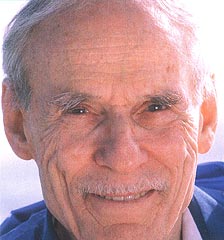
HOBBS, ROBERT
FRANKLIN, age 78, died January
14, 1989 in a San Luis Obispo Hospital. Kin of noted English
philosopher, Thomas
Hobbes (1588-1679).
A resident of Arroyo Grande, CA he was a member of Fresno and Santa Maria Elks
Club. He is survived by his wife Naomi of 54 years, 2
sons, Dr. Howard E. Hobbs PhD of Clovis, CA who is the Editor and Publisher of
the Fresno Republican Newspaper
founded in 1876 by A.L. Hobbs, and son Robert K. Hobbs a musician of Berkeley. Also
surviving Mr. Hobbs are Laurie
Hobbs Kobliska,
granddaughter
of
Elk
Grove,
and Thomas Hobbs of Fresno, grandson, Executive Editor of the Clovis Free Press,
a sister Marguerite Shields of Buena Park; brother Howard J. Hobbs of Kansas
City, M0, 1 niece and
3 nephews,
7 great nieces and great nephews and many cousins. Remembrances
may be made to the Robert F. Hobbs Foundation at 754 Third St. Suite 101A,
Clovis, CA 93612. Cremation and burial at sea has been arranged.

|
|
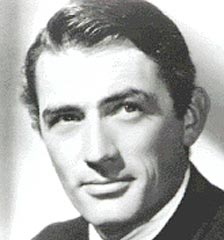
PECK, ELDRED GREGORY, age 87, died in his
sleep June 11, 2003 in his Beverly Hills home. Peck, who
was in a fragile state, fell asleep while holding the hand
of his wife of 48 years, VERONIQUE. Peck starred in many
of the best-loved films of all time, but was known fondly
for his unforgettable, Oscar-winning role as a small-town
lawyer defending an innocent client on rape charges in 'To
Kill a Mockingbird' (1962). Peck will also be remembered
for his presence -- the tall, lanky frame and dashing, dark,
good looks that projected strength, sincerity, and intelligence.
Born ELDRED Gregory Peck, the actor dropped his first name,
which he said he "endured and hated for 21 years,"
when he embarked upon his acting career. Born in San Diego,
CA, in 1916, Peck ventured to Hollywood during World War
II, and earned notice as a mental patient who romanced Dr.
INGRID BERGMAN in ALFRED HITCHCOCK's 1945 thriller 'Spellbound.'
Peck is survived by his wife and five children -- all whom
he considered the greatest gifts of all, as he once said,:
"Love and marriage and kids, those are the moments
of all happiness and fulfillment in life. I don't know anything
better than that."

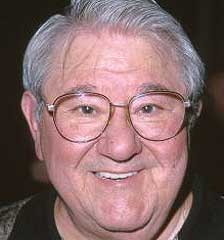
HACKETT, BUDDY, Age 78,
the round, rubbery-faced funnyman who appeared for more
than 50 years as a top act in nightclubs, Broadway shows,
on television and in such movies as The Music Man,The
Love Bug and It's a Mad, Mad, Mad, Mad World.
Hackett died at his Southern California beach house either
late Sunday or early Monday. The cause of his death was
not immediately known; Hackett's son said Buddy Hackett
suffered from diabetes.

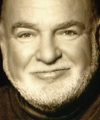
SCHLESINGER, JOHN, Dies at 77; Won an Oscar for
'Midnight Cowboy' the Oscar-winning director who brought
gay characters into mainstream cinema with "Midnight
Cowboy" and who tapped into nightmares with the teeth-drilling
torture of "Marathon Man," died July 25 at a hospital
in Palm Springs, Calif. He suffered a debilitating stroke
in December 2000.The British-born filmmaker, whose films
included "Darling," "Billy Liar" and
"Sunday Bloody Sunday," broke ground in 1969 with
"Midnight Cowboy." It starred Jon Voight, who
portrayed a naive Texan who turns to prostitution to survive
in New York, and Dustin Hoffman, as the scuzzy, ailing vagrant
"Ratso" Rizzo.The film's homosexual theme was
regarded as scandalous, but the tale of underdogs trying
to survive in a merciless metropolis was embraced by critics
and Hollywood despite its shocking sequences."Midnight
Cowboy," based on a novel by James Leo Herlihy, was
nominated for seven Academy Awards, winning for Best Director,
Best Picture and Best Adapted Screenplay. It was the only
X-rated film to win the best-film Oscar; reflecting changing
standards, the rating was later changed to an "R."
Mr. Schlesinger, who was gay, said in 1970: "I'm only
interested in one thing -- that is tolerance. I'm terribly
concerned about people and the limitation of freedom. It's
important to get people to care a little for someone else.
That's why I'm more interested in the failures of this world
than the successes." After "Midnight Cowboy,"
he explored homosexuality in his next project, 1971's "Sunday
Bloody Sunday," which starred Peter Finch and Glenda
Jackson as acquaintances who reluctantly share a love for
the same young man. The director received another Oscar
nomination for that film.The characters in Schlesinger's
films often struggled with their place in the world, and
he depicted them as lonely, disenchanted and sometimes forgotten.
In 1975, he directed an adaptation of the Nathanael West
novel "The Day of the Locust," about young would-be
stars who find only disappointment in Hollywood. Mr. Schlesinger
himself felt an estrangement from success. "If I've
ever had any commercial success, it's been a total fluke.
I wouldn't have known 'Midnight Cowboy' would have done
so well," he said in 1990. But he wasn't above directing
commercial films, such as his 1976 thriller "Marathon
Man." That re-teamed him with Hoffman, who played an
innocent man tortured for information by Laurence Olivier's
character, a hiding Nazi war criminal with a penchant for
drilling teeth. That film turned Mr.
Schlesinger toward more thrillers, including his 1985 tale
of true-life spy skulduggery, "The Falcon and the Snowman,"
starring Sean Penn and Timothy Hutton as young Americans
convicted of spying for the Soviet Union. The director said
he thought the movie was in some ways "a black farce
about American security." Both protagonists -- one
a seminary dropout, the other a drug dealer -- were depicted
as depressed and isolated. "It's kind of pathetic.
. . . Both of them are," Mr. Schlesinger said in 1994.
"It's one of the things, also, that appealed to me."
Mr. Schlesinger -- who was associated with the Kitchen Sink
school of British filmmaking -- established himself as one
of England's most promising young directors in 1962 with
"A Kind of Loving," which starred a then-unknown
Alan Bates as a man who marries his pregnant lover only
to find himself ill-prepared for commitment. The director
followed that with "Billy Liar," about a lazy,
young man who hides from responsibility by daydreaming --
one of his dreams is about a young woman played by newcomer
Julie Christie. Christie worked with Mr. Schlesinger again
on his next film, 1965's "Darling," which won
her an Academy Award for Best Actress for her role as a
ruthless model who bullies her way to success. Mr. Schlesinger
was nominated for Best Director. She starred again in his
1967 production of "Far From the Madding Crowd,"
which also featured Finch and Bates. His other films included
1987's "The Believers," starring Martin Sheen
as a psychiatrist fighting a voodoo cult, and 1988's "Madame
Sousatzka," which featured Shirley MacLaine as an eccentric
piano teacher who befriends a 15-year-old student but clashes
with him over whether he should try to earn money from his
talent. The filmmaker's first comedy, 1981's "Honky
Tonk Freeway," was a warmhearted look at small-town
America. He started the 1990s with a story about how little
neighbors can know about each other. The film, "Pacific
Heights," starred Michael Keaton as a malicious tenant
who terrorizes his landlords, played by Matthew Modine and
Melanie Griffith. His other notable films included 1995's
"Cold Comfort Farm," about an orphan who moves
in with her eccentric, agrarian distant-relatives, and 1996's
"Eye for an Eye," in which Sally Field played
a mother-turned-vigilante who hunts down her young daughter's
rapist killer, freed from prison on a legal technicality.
"It's more human to be frightened," Mr. Schlesinger
said about his characters in 1994. "I've always had
more sympathy for the struggler, the underdog, the person
who isn't so much glamorous as on the fringe of everything."
His last film was the 2000 comedy "The Next Best Thing,"
about a straight woman (Madonna) who decides to have a child
with her gay friend (Rupert Everett). Born in London in
1926 and raised in Hampstead, Mr. Schlesinger began making
home movies as a child. He served with the Royal Engineers
during World War II. After graduating from Balliol College,
Oxford, in 1950, he was a character actor for eight years
on stage and screen before being hired by the BBC to make
arts-related documentaries. His first commercial film, "Terminus,"
about a day in the life of a train station, won the British
Academy Award and the Golden Lion for Best Documentary at
the 1961 Venice Film Festival. The child of musicians, he
was a gifted pianist at an early age. Mr. Schlesinger also
directed operas for the Royal Opera House and the Salzburg
Festival. In 1988, he took an acting role as a geneticist
in "The Twilight of the Golds." He also directed
plays for Britain's Royal Shakespeare Company and the National
Theatre and made two music videos, including "Little
Willow" for Paul McCartney. The director lived in England
and in Palm Springs with photographer Michael Childers,
his companion of 30 years. Other survivors include a brother
and a sister.
|






